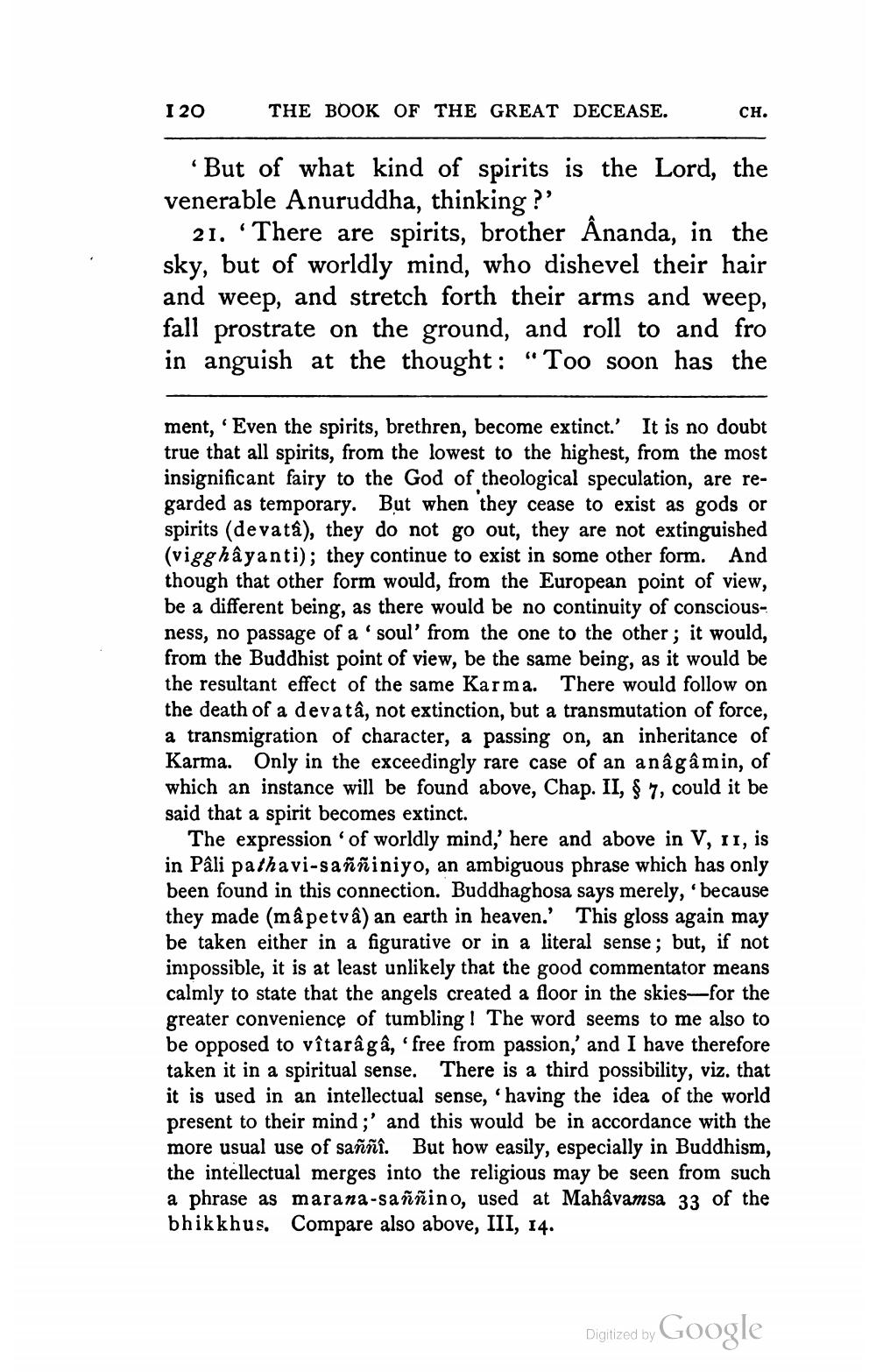________________
120
THE BOOK OF THE GREAT DECEASE.
CH.
But of what kind of spirits is the Lord, the venerable Anuruddha, thinking ?
21. “There are spirits, brother Ananda, in the sky, but of worldly mind, who dishevel their hair and weep, and stretch forth their arms and weep, fall prostrate on the ground, and roll to and fro in anguish at the thought: “Too soon has the
ment, 'Even the spirits, brethren, become extinct.' It is no doubt true that all spirits, from the lowest to the highest, from the most insignificant fairy to the God of theological speculation, are regarded as temporary. But when they cease to exist as gods or spirits (devata), they do not go out, they are not extinguished (vigg hầyanti); they continue to exist in some other form. And though that other form would, from the European point of view, be a different being, as there would be no continuity of consciousness, no passage of a 'soul' from the one to the other; it would, from the Buddhist point of view, be the same being, as it would be the resultant effect of the same Karma. There would follow on the death of a devatâ, not extinction, but a transmutation of force, a transmigration of character, a passing on, an inheritance of Karma. Only in the exceedingly rare case of an anâgâmin, of which an instance will be found above, Chap. II, § 7, could it be said that a spirit becomes extinct.
The expression of worldly mind,' here and above in V, 11, is in Pâli pathavi-saññiniyo, an ambiguous phrase which has only been found in this connection. Buddhaghosa says merely, because they made (mâpetva) an earth in heaven. This gloss again may be taken either in a figurative or in a literal sense; but, if not impossible, it is at least unlikely that the good commentator means calmly to state that the angels created a floor in the skies-for the greater convenience of tumbling! The word seems to me also to be opposed to vîtarâgâ, 'free from passion,' and I have therefore taken it in a spiritual sense. There is a third possibility, viz. that it is used in an intellectual sense,'having the idea of the world present to their mind;' and this would be in accordance with the more usual use of saññî. But how easily, especially in Buddhism, the intellectual merges into the religious may be seen from such a phrase as marana-saññino, used at Mahavamsa 33 of the bhikkhus. Compare also above, III, 14.
Digitized by Google




